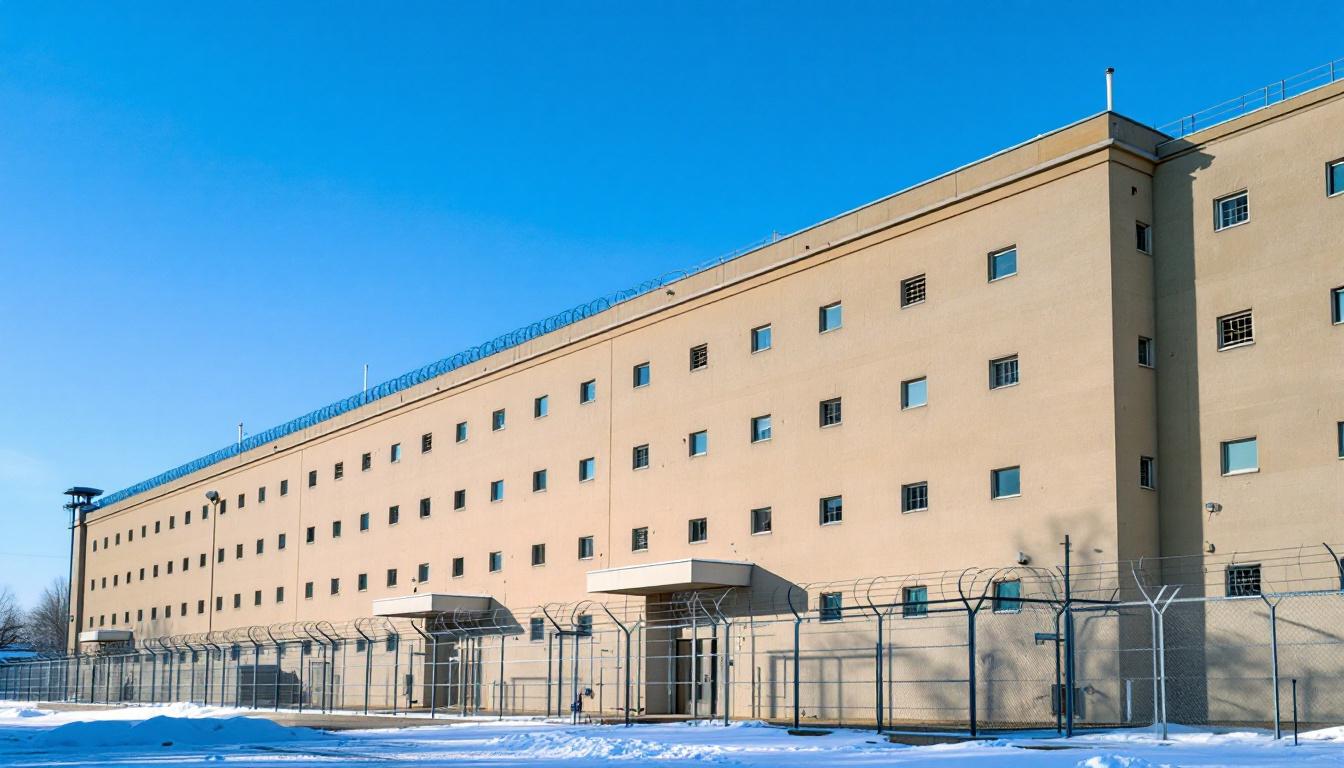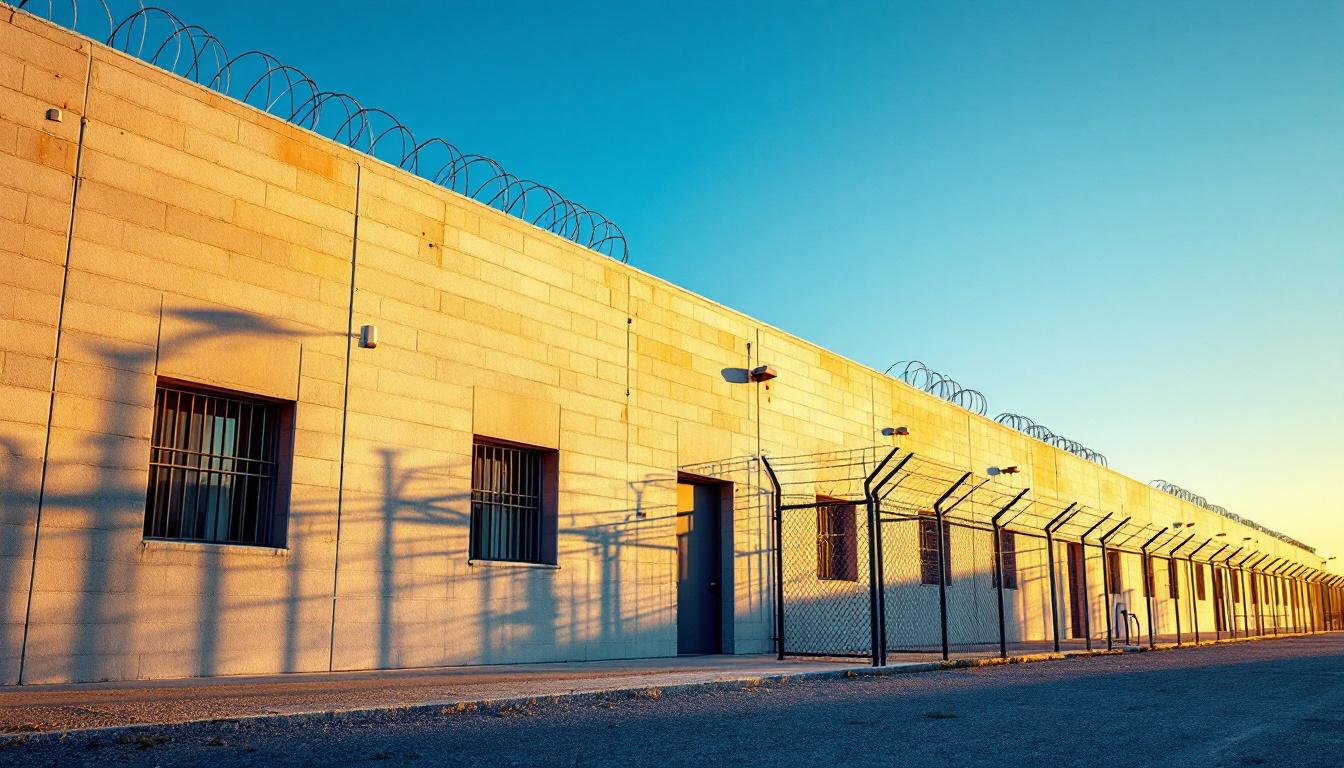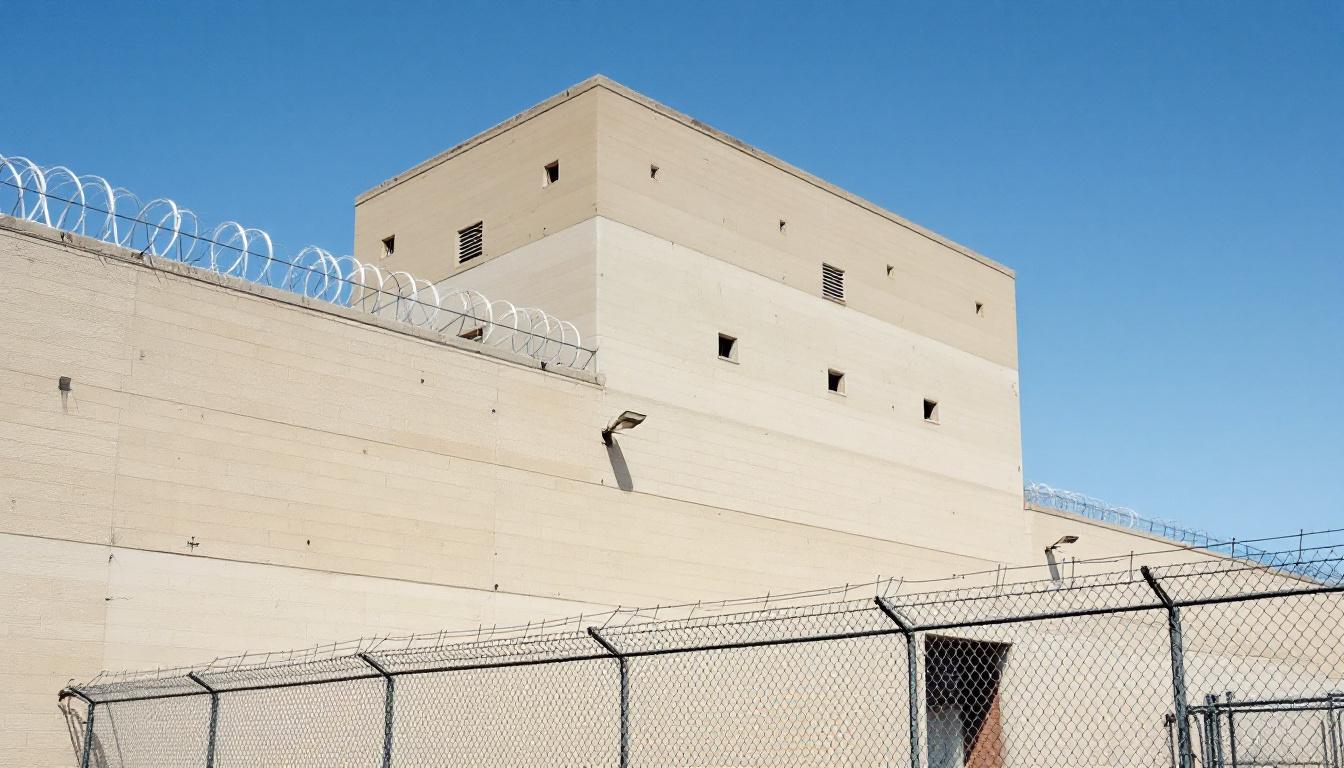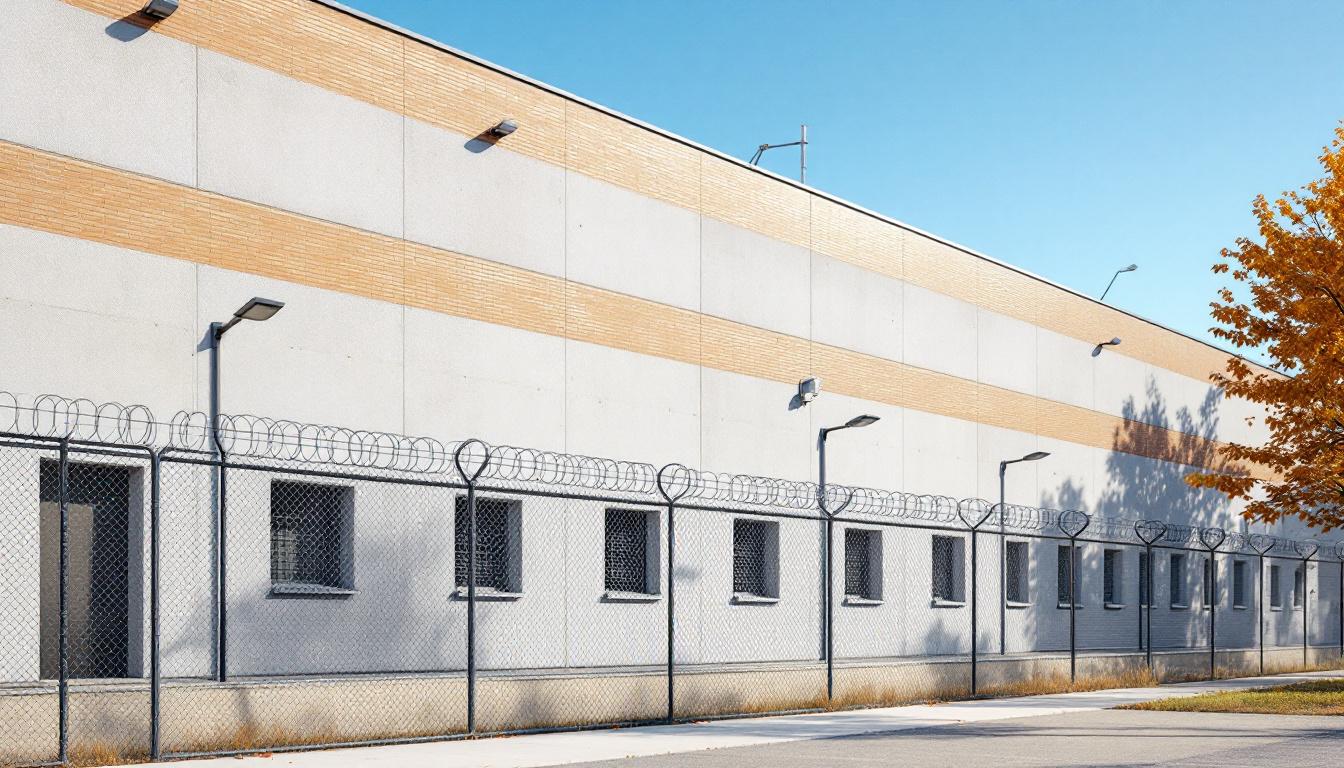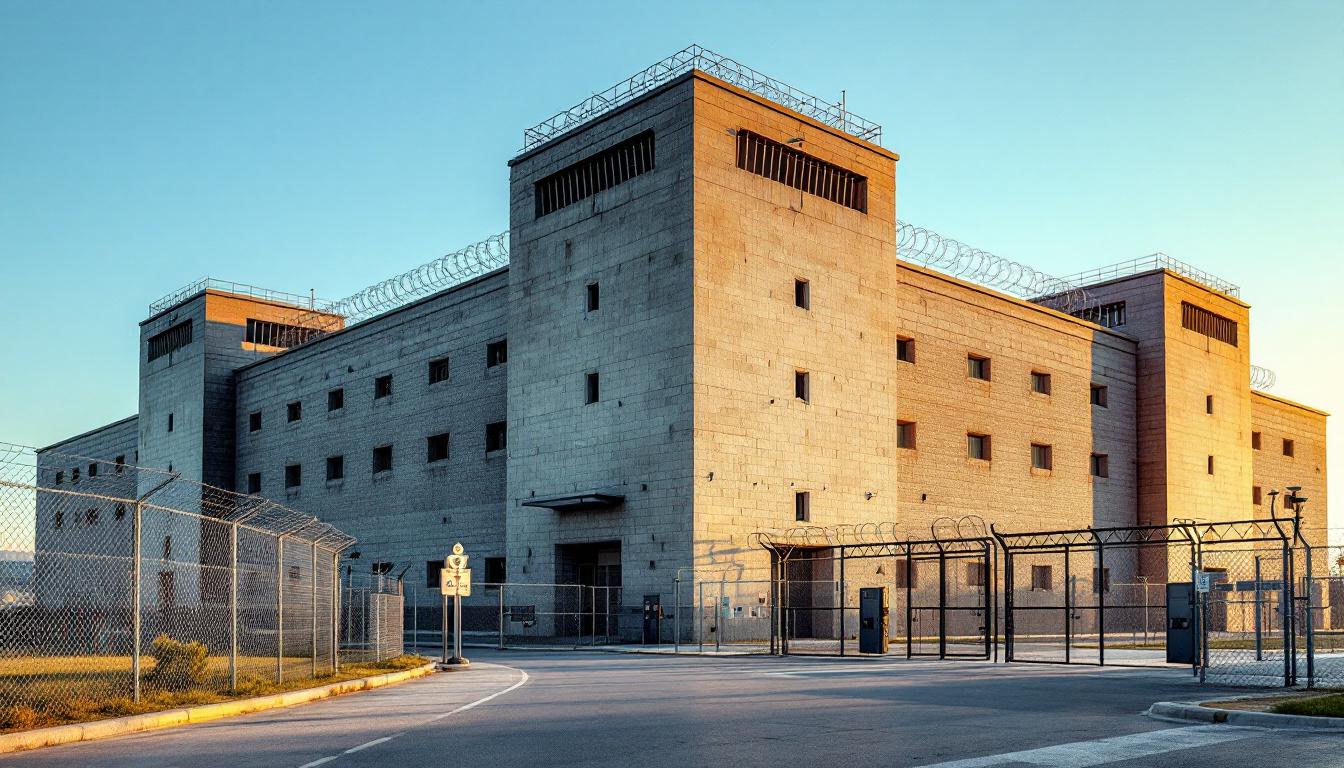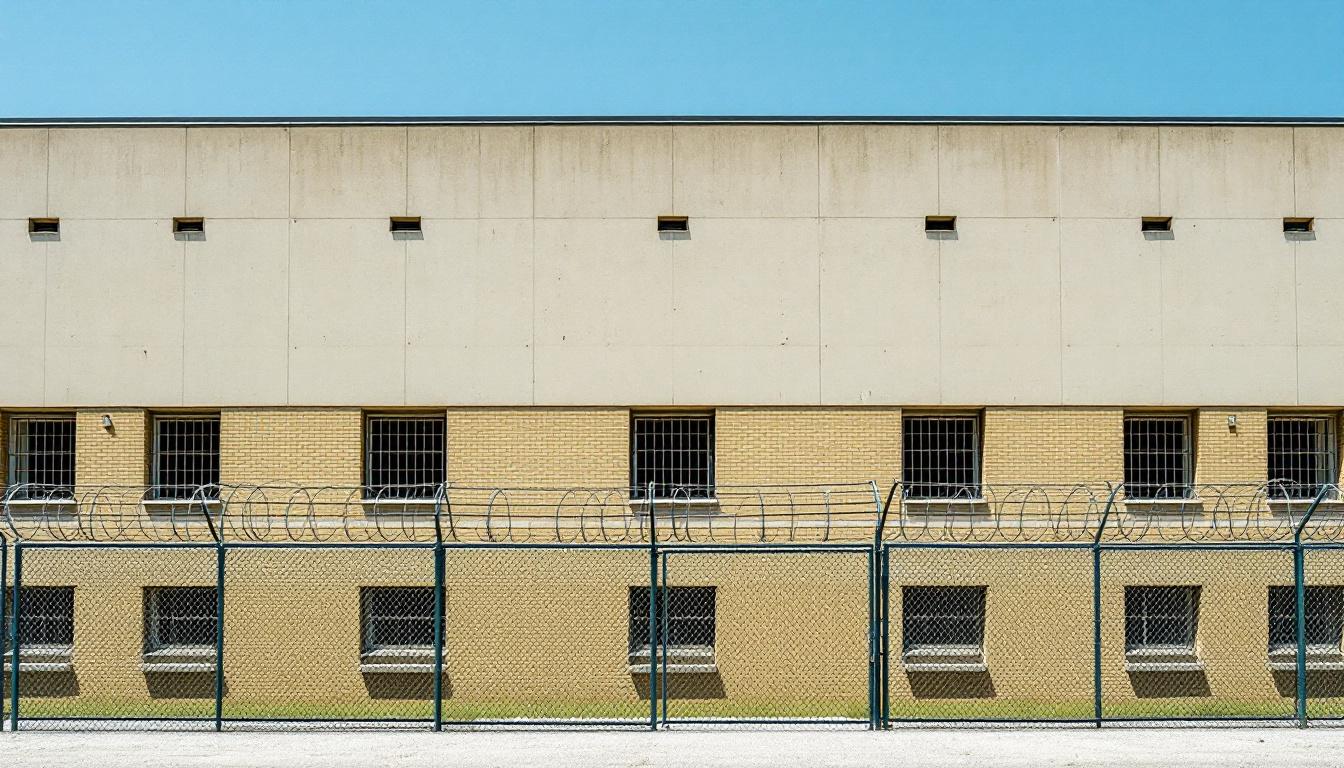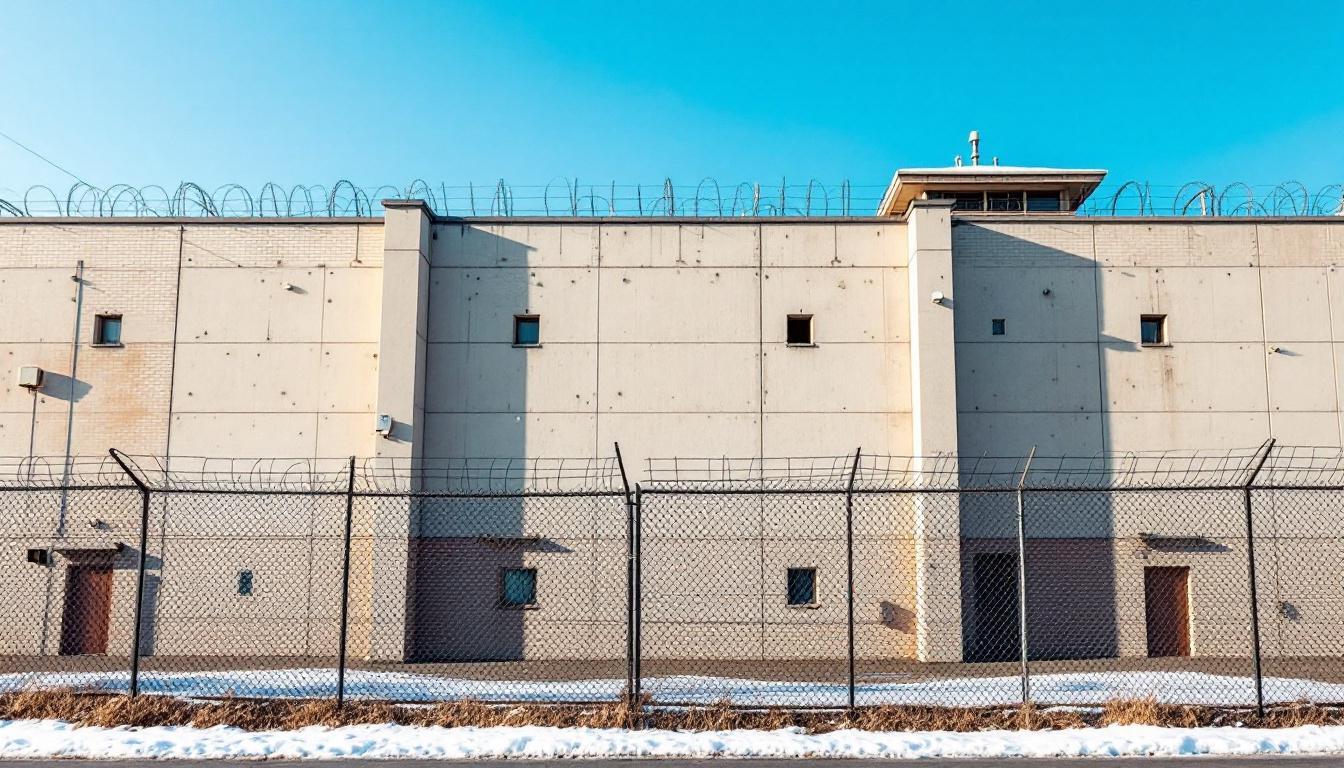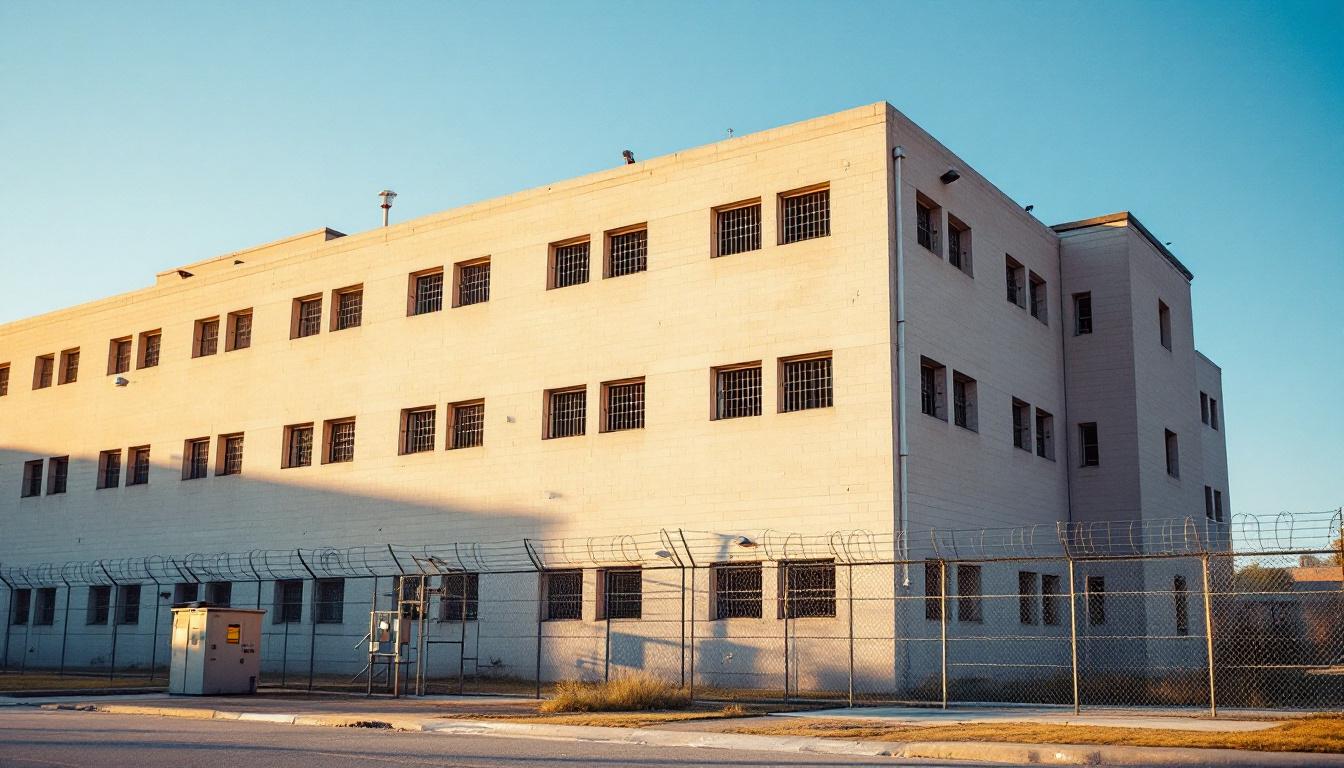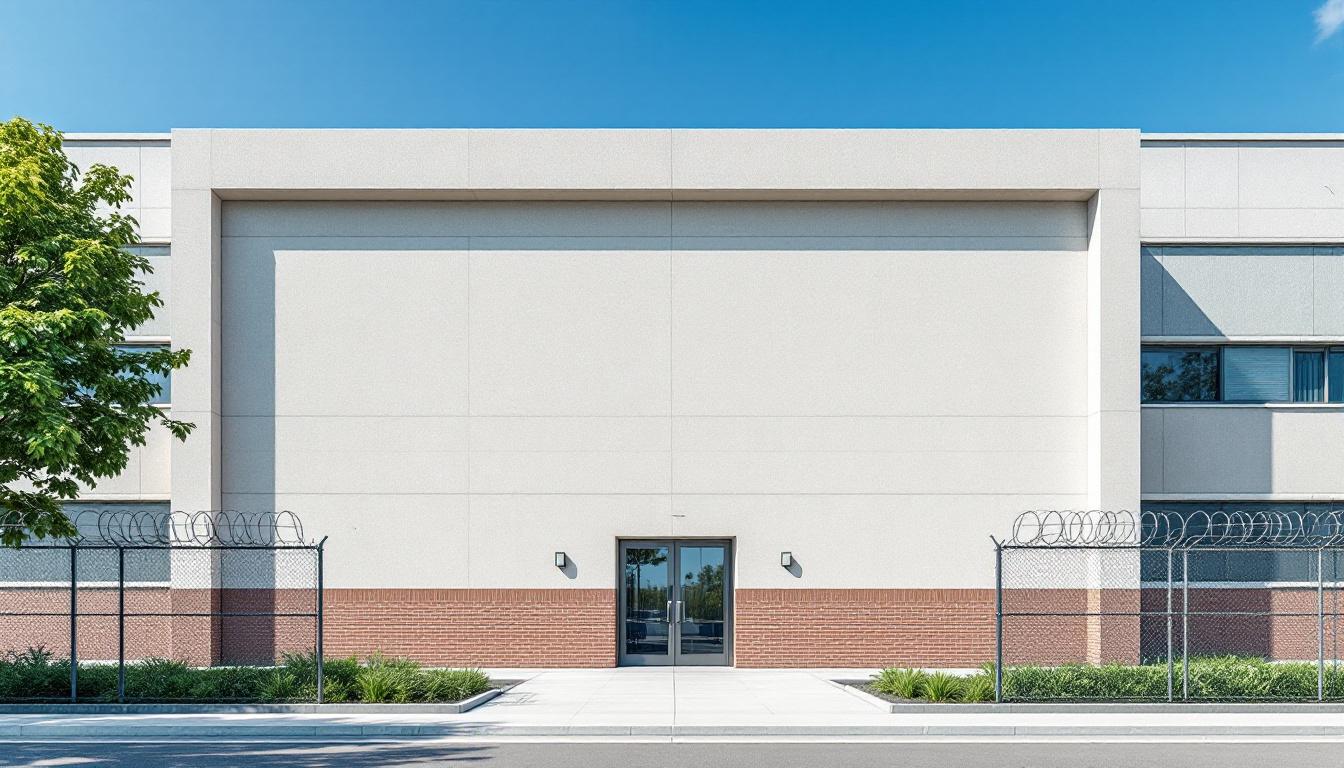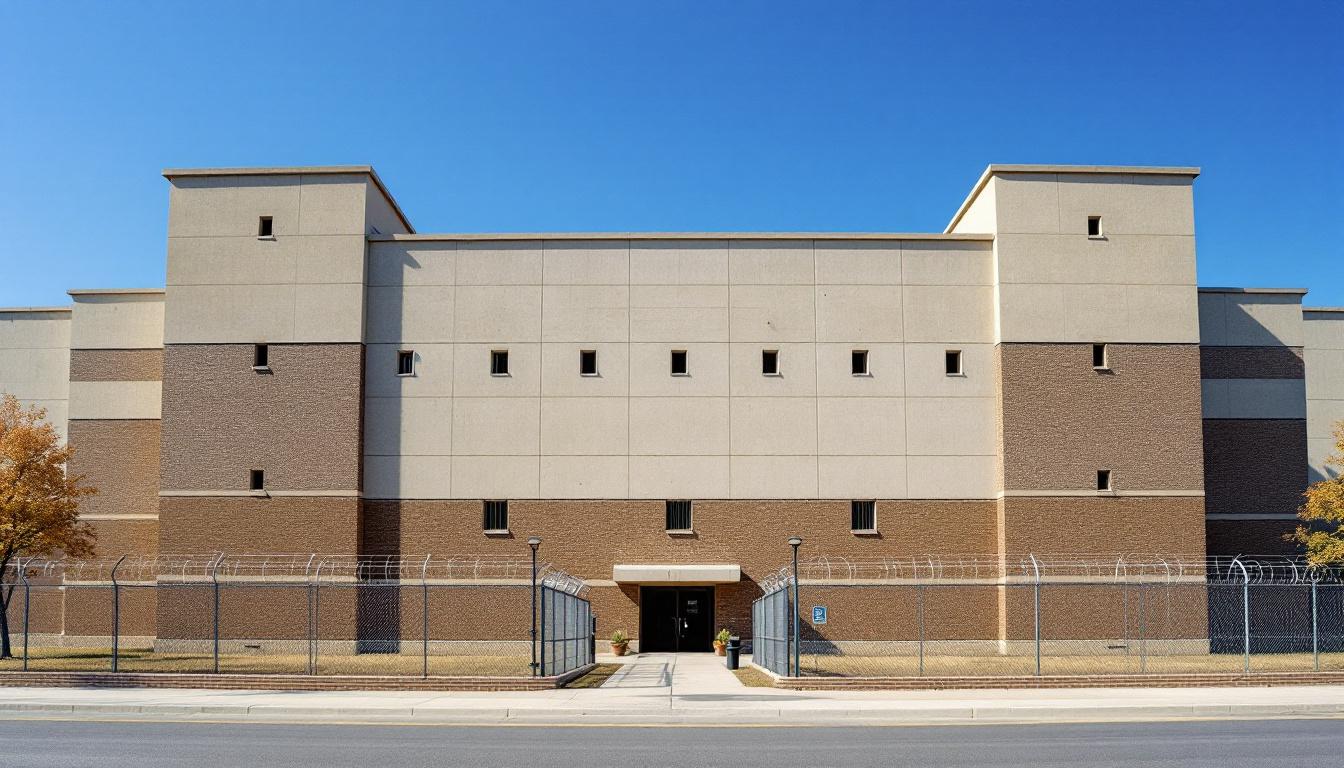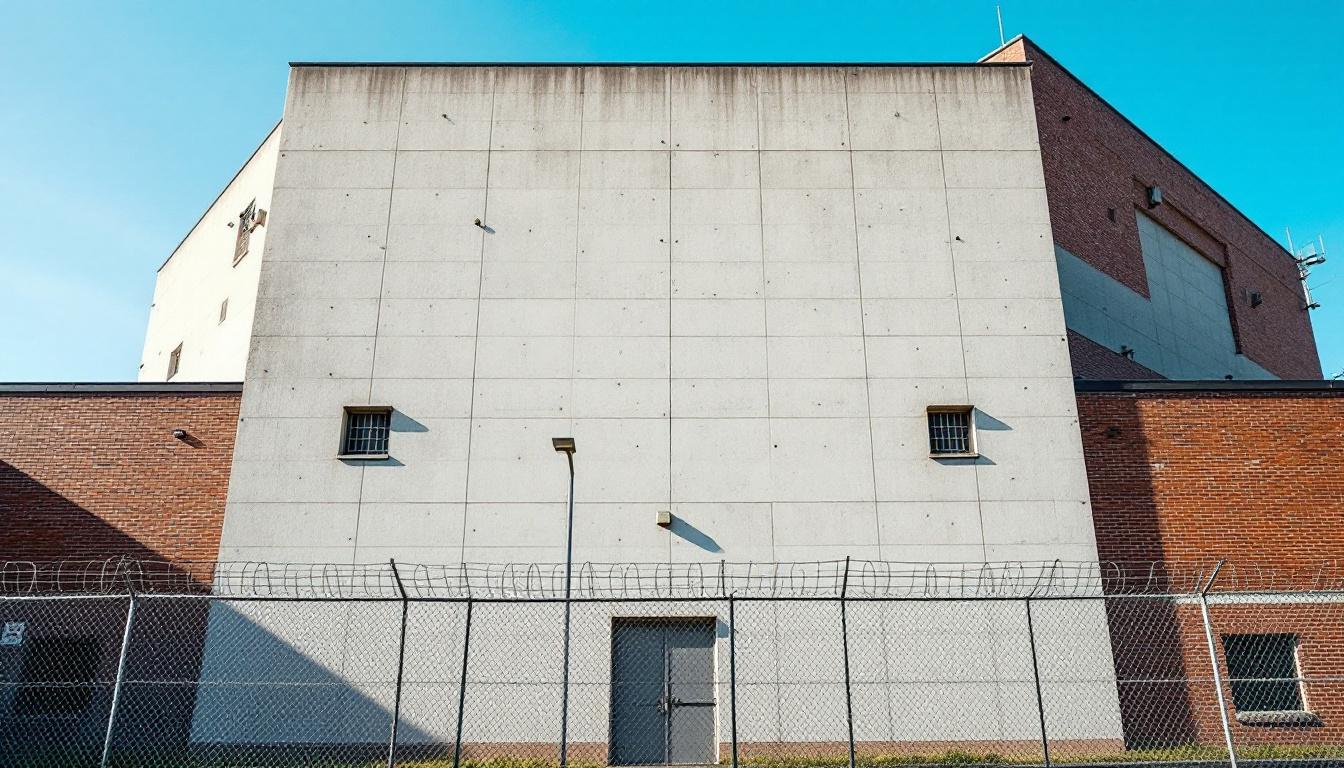
Quick Navigation
How to contact an inmate at Brantley County Sheriff
This comprehensive guide will walk you through how to connect with an inmate at Brantley County Sheriff. Follow the steps below to find an inmate and send letters and photos:
- Search for the inmate using our search tool below
- Create your account or log in to Penmate
- Write your message (up to 6,000 characters)
- Send instantly - inmates receive printed copies daily
Find an Inmate
Search for an inmate to start communicating today
Tip: You can search by first name, last name, or inmate ID number
To contact a person at Brantley County Sheriff start by searching for the person on the official facility website. Perform a search by following these steps:
- Step 1: Enter their first name and last name into the search form and click "Search"
- Step 2: Locate their inmate record
- Step 3: Write down their Inmate ID and any housing information provided
Important! Be sure to enter the person's full name. Nicknames should not be used.
How to Send Messages to Inmates

You can use your phone or computer to send emails, letters, and photos to an inmate. Messages are sent electronically to inmate tablets or kiosks at the facility. If you would like to send a message, start by searching for an inmate at Brantley County Sheriff.
Sending Photos and Postcards

A great way to send love and support to a loved one at Brantley County Sheriff is to send photos and postcards. It only takes a few minutes to send photos from your phone and it makes a huge difference. You can also mail postcards with words of support and inspiration, or design your own postcard for special moments like birthdays and holidays.
Important! Be sure not to send any explicit photos or they may not be approved by the facility. You can also use a photo printing app like Penmate to make sure your photos are printed at the correct size (4x6 or 3x5) and are mailed according to the rules and regulations of Brantley County Sheriff.
Frequently asked questions about Brantley County Sheriff
-
How long does it take to deliver a message?
If you're sending an email message your letter is usually delivered within 24-48 hours. For messages sent via mail you should expect delivery within 3-7 days. All messages will need be approved by Brantley County Sheriff.
-
How much does it cost to send a message to Brantley County Sheriff?
You can send a message free using your phone or mail a message via USPS for the price of a $0.60 stamp and envelope. You can also purchase credits or e-stamps from services starting at $1.99.
-
What services can I use to contact an inmate at Brantley County Sheriff?
Penmate
You can use Penmate to send letters and photos to an inmate from your phone. It's an easy way to stay in touch during your loved one's incarceration. Use the inmate locator to find an inmate's location and contact information, then you can send messages within a few minutes.
Securus messaging
Securus may be another option for communicating with an inmate at Brantley County Sheriff. You can create a friends and family account and purchase credits to send messages. All messages will be reviewed and must be approved by the facility.
JPay
Some county jails and state prisons may support sending messages with JPay. You must register an account with the system, find your loved one, and purchase stamps to send messages. For some locations you can also attach photos.
Smart Jail Mail
You may also check if Smart Jail Mail is available at Brantley County Sheriff. Smart Jail Mail is operated by Smart Communications and has contracted with some state and county jails. After purchasing credits, your messages and photos are sent to the facility, printed out, and then handed out to your loved one.
-
What is the mailing address of Brantley County Sheriff?
Mailing address:
Brantley County Sheriff
95 John Wilson St
Nahunta, GA 31553
Phone: (912) 462-6141 -
What are the visiting hours at Brantley County Sheriff?
Visiting hours at Brantley County Sheriff vary by housing unit and security level. Generally, visits are scheduled on weekends and holidays, with some facilities offering weekday visits. Contact the facility directly at (912) 462-6141 or check their website for the current visiting schedule. Visits typically last 30-60 minutes and must be scheduled in advance.
-
What items are prohibited when sending mail to Brantley County Sheriff?
Prohibited items typically include: cash, personal checks, stamps, stickers, glitter, glue, tape, staples, paperclips, polaroid photos, musical or blank greeting cards, hardcover books, magazines with staples, and any items containing metal or electronics. Only send letters on plain white paper with blue or black ink. Photos must be printed on regular photo paper (no Polaroids). Always check with Brantley County Sheriff for their specific mail policies.
-
How do I send money to an inmate at Brantley County Sheriff?
You can send money to an inmate at Brantley County Sheriff through several methods: 1) Online using JPay, Access Corrections, or the facility's approved vendor, 2) Money orders mailed directly to the facility with the inmate's name and ID number, 3) Kiosks located in the facility lobby, or 4) Over the phone using a credit or debit card. Fees vary by method, typically ranging from $2.95 to $11.95 per transaction.
-
Can I schedule a video visit with an inmate at Brantley County Sheriff?
Many facilities now offer video visitation as an alternative to in-person visits. At Brantley County Sheriff, video visits may be available through services like Penmate, Securus Video Connect, GTL, or ICSolutions. Video visits typically cost $10-20 for 20-30 minutes and must be scheduled in advance. You'll need a computer or smartphone with a camera and reliable internet connection. Contact the facility for their specific video visitation policies and approved vendors.
-
What identification do I need to visit an inmate at Brantley County Sheriff?
All visitors must present valid government-issued photo identification such as a driver's license, state ID, passport, or military ID. Minors must be accompanied by a parent or legal guardian who can provide the minor's birth certificate. Some facilities require visitors to be on the inmate's approved visitation list, which may require a background check. Contact Brantley County Sheriff for specific ID requirements and visitor approval procedures.
-
How can I find out an inmate's release date?
To find an inmate's release date at Brantley County Sheriff, you can: 1) Use the online inmate search tool if available, 2) Call the facility's records department, 3) Contact the inmate's case manager or counselor, or 4) Have the inmate provide this information during a call or visit. For privacy reasons, some facilities only release this information to immediate family members.
Facility Overview
Contact Information
Brantley County Sheriff95 John Wilson St
Nahunta, GA 31553
Phone: (912) 462-6141
Official Website
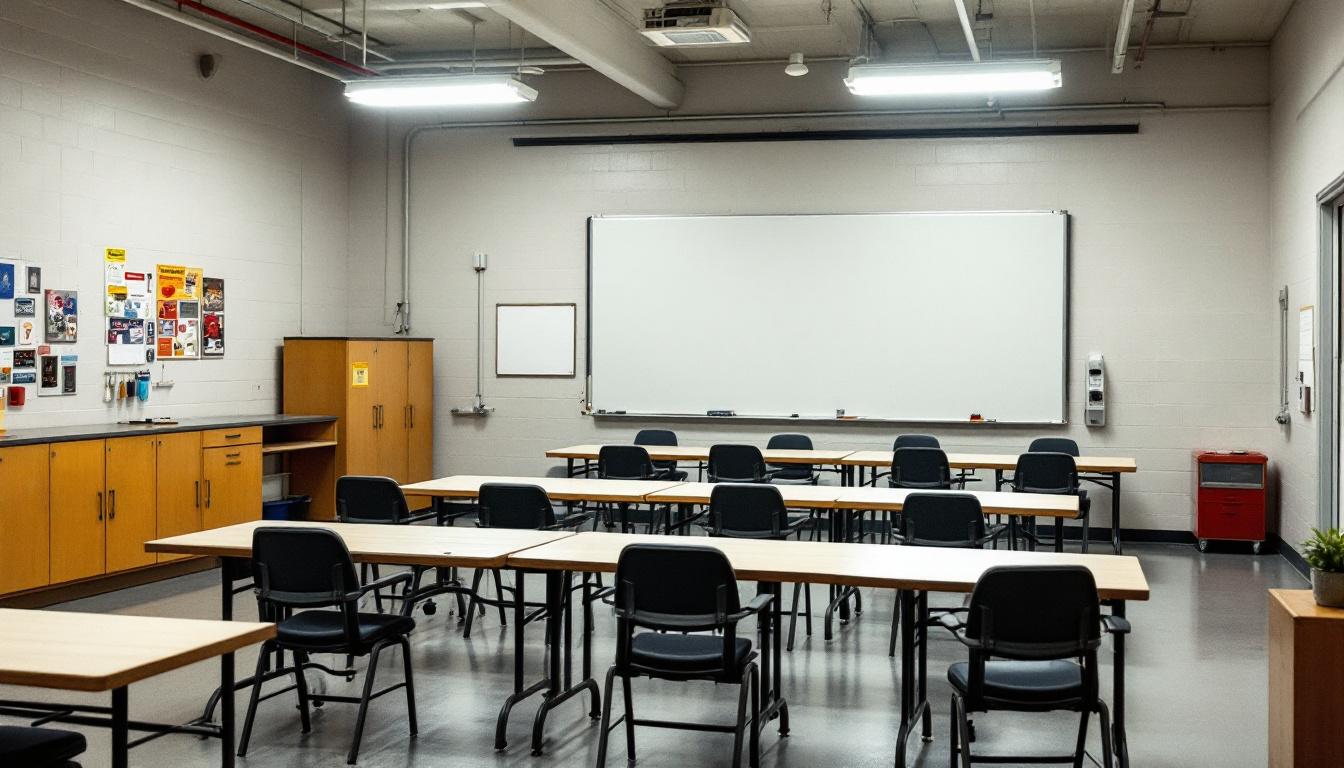
About Brantley County Sheriff
County jails throughout Georgia serve as crucial intake and short-term detention centers within the state's broader correctional framework, and Brantley County Jail in Nahunta exemplifies this essential local function. Operating within Georgia's southeastern corridor, this facility typically processes individuals awaiting trial, serving short sentences, or being held on various legal matters that require secure custody. The jail's position in Nahunta places it within a region where rural communities often rely heavily on county-level corrections infrastructure to maintain public safety while supporting the judicial process.
As part of Georgia's decentralized correctional system, Brantley County Jail generally provides the population services that bridge the gap between arrest and either release or transfer to state facilities. The facility typically offers basic programming that may include educational opportunities, substance abuse awareness, and reentry preparation designed to support individuals during their stay. Like many county jails across the state, it often coordinates with local courts, probation services, and community organizations to facilitate the legal process while maintaining connections between detained individuals and their families in the surrounding area.
The jail's operations generally reflect the broader challenges and responsibilities facing county corrections throughout Georgia, where facilities must balance security requirements with rehabilitation goals within often limited resources. Staff typically work to maintain safe conditions while providing essential services that may include medical care, visitation programs, and communication access that helps preserve family bonds during incarceration periods.
Programs & Services
Through a comprehensive framework of rehabilitative initiatives, the population at Brantley County Jail receives multifaceted support designed to address both immediate needs and long-term reintegration goals. The facility's approach to programming emphasizes personal development and skill acquisition, recognizing that meaningful change occurs when individuals are provided with the tools and resources necessary for successful community reentry. These carefully structured interventions typically focus on building foundational competencies while addressing underlying factors that may have contributed to justice system involvement.
Educational and vocational programs form the cornerstone of skill development opportunities available to the population. Education programs may supply basic literacy instruction, GED preparation, and academic coursework that enables participants to advance their educational attainment during incarceration. Furthermore, civic education components often include instruction on legal rights, community responsibilities, and democratic participation, fostering greater civic engagement upon release. Vocational training initiatives typically provide hands-on experience in marketable trades, while specialized programs such as upholstery instruction may offer participants the opportunity to develop specific technical skills that translate directly into employment opportunities within the broader community.
Mental health counseling services address the therapeutic needs of the population through professional interventions designed to promote emotional wellness and behavioral change. These programs often include individual and group counseling sessions that help participants develop coping strategies and address underlying mental health challenges. Faith-based services typically provide spiritual support and community connection for those seeking religious guidance during their incarceration. Additionally, time management programs may supply practical life skills training that assists individuals in developing organizational abilities and personal accountability measures essential for successful reintegration into family and community life.
Daily Life & Visitation
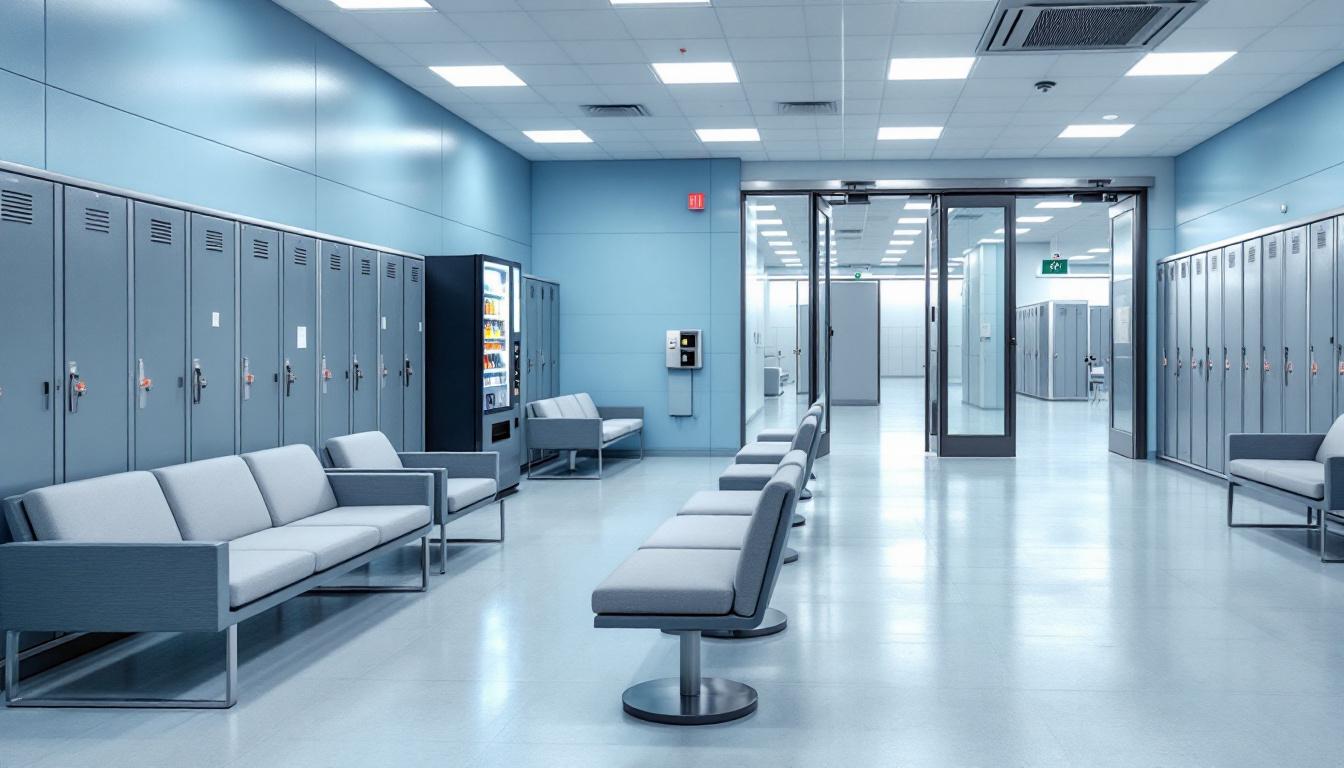
The carefully orchestrated organizational framework at Brantley County Jail shapes every aspect of how the population experiences their time within the facility, with systematic schedules and structured protocols governing the flow of daily activities. Today's routine typically begins with early morning counts and meal service, followed by consistently scheduled periods for housing unit cleaning, recreational activities, and any available programming opportunities. The population generally moves through their day according to predetermined schedules that supply both predictability and security, with staff coordinating transitions between different areas of the facility to maintain order while allowing for necessary daily functions.
Furthermore, the living accommodations within the facility typically consist of dormitory-style housing units or individual cells, depending on classification levels and available space, with the population sharing common areas that include dayrooms equipped with basic amenities such as televisions and tables for recreational activities. Meals are usually served in designated dining areas or delivered directly to housing units, with the population receiving three meals daily that meet basic nutritional requirements. Although personal property is generally limited to essential items and approved commissary purchases, residents may typically maintain small personal belongings that help provide comfort during their stay.
The facility generally offers structured programming schedules that may include educational opportunities, substance abuse counseling, or religious services, depending on available resources and staffing. Recreation and exercise opportunities typically supply the population with scheduled outdoor time or access to indoor recreational spaces, allowing for physical activity and social interaction within supervised settings. Visitation policies usually permit family members and approved visitors to maintain contact through scheduled visits, while communication options may include monitored telephone calls and correspondence, helping the population maintain important family connections and support systems throughout their time at the facility.
Ready to Connect?
Start communicating with your loved one today
Search for an Inmate
